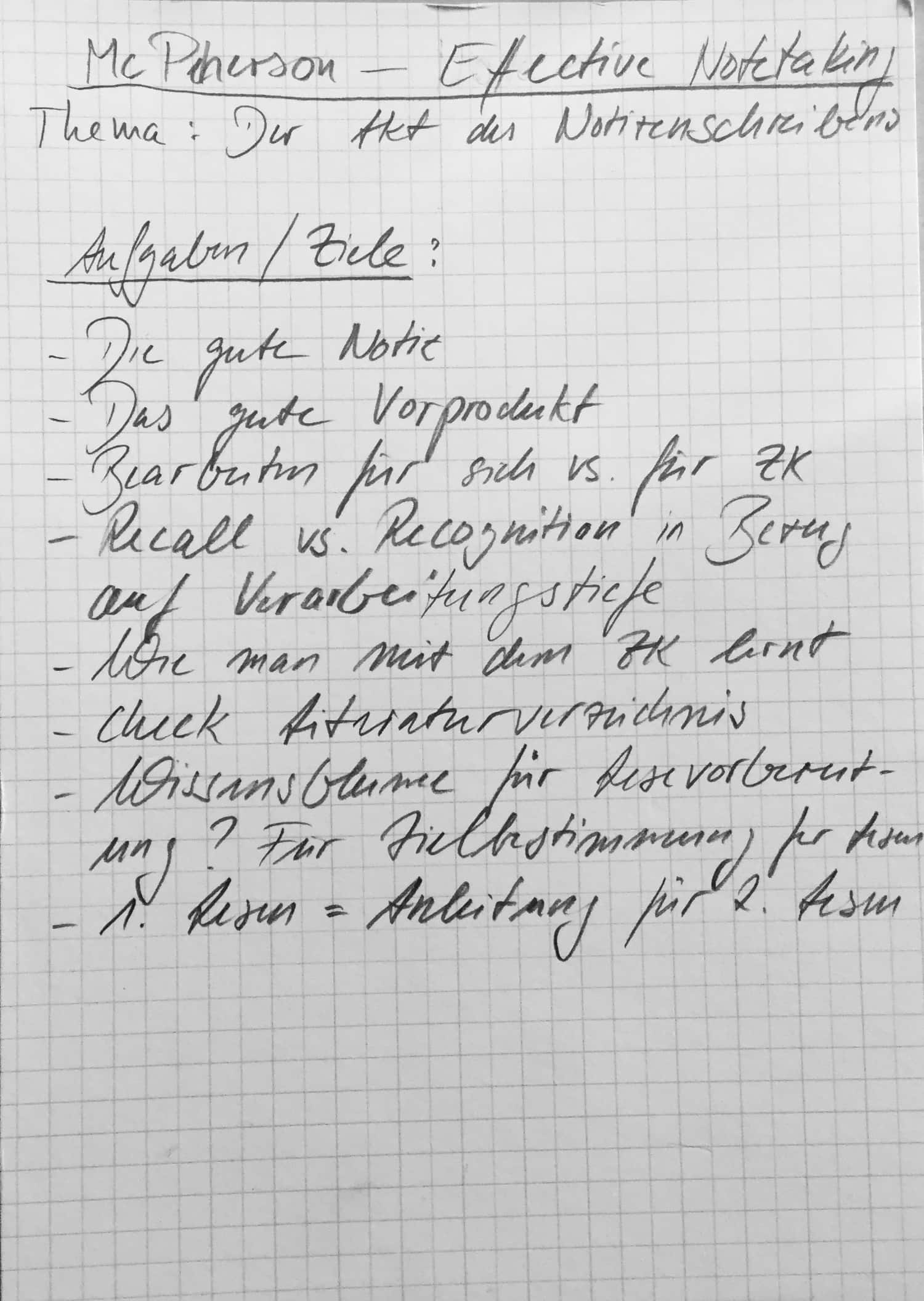Field Report #5: How I Prepare Reading and Processing Effective Notetaking by Fiona McPherson
 Field Report #5: How I Prepare Reading and Processing Effective Notetaking by Fiona McPherson
Field Report #5: How I Prepare Reading and Processing Effective Notetaking by Fiona McPherson
When you process a book into your Zettelkasten you should prepare both the book and your Zettelkasten. I set clear expectations and why I am reading a book; I review the table of content to generate a mental map; I review the table of content to generate a mental map; I plan what I will use the book for within my Zettelkasten.
Post edited by ctietze on
Howdy, Stranger!
Comments
Thanks for this.
How we select reading material is becoming more and more critical. I love that you and Fiona McPherson map out specific strategies for prepping to read a book and checking the validity of the author's claims.
@Sascha, this is the first time I've heard about considering the ratio of books to research papers in a bibliography as a measure of the tenor of a book, but it makes perfect sense. Skimming the titles of the bibliography listing is another excellent tip. Reviewing a bibliography is something I could be doing with more regularity.
Reviewing the TOC and creating my mental map of a book in preparation for reading is something I don't do. I see this now as a failing, a character defect in myself. I know better and want to do better. I'd avoid reading mistakes if I took the time to create a mental map either in my noggin or on paper or with mind mapping software.
Will Simpson
My peak cognition is behind me. One day soon, I will read my last book, write my last note, eat my last meal, and kiss my sweetie for the last time.
kestrelcreek.com
Yeah. I was happy when I figured that out. It is case by case metric though.
I think this step is useful but overrated. It helps to understand the authors intentions and how they tackle the issue at hand. But it is only the first anchor and it is very likely you'll develop this map during the reading process anyhow.
I am a Zettler
It is overrated for the experienced, skilled reader. But I'm maybe approaching the journeyman phase. The beginner wants to do this at the beginning of the read, revise it during the read and refactor it again as they onboard it to their ZK. Sure, with deliberate practice and feedback skills will develop, making parts of this process redundant for the expert. But I'm not there yet.
One clear lesson from Effective Notetaking by Fiona McPherson is that reading and note-making are learnable skills with proven approaches.
Will Simpson
My peak cognition is behind me. One day soon, I will read my last book, write my last note, eat my last meal, and kiss my sweetie for the last time.
kestrelcreek.com
Thanks for sharing this.
I recently went through the text fairly quickly. One thing that I thought afterwards was that the book seemed to be a bit more about reading than taking notes.
Not sure if others came away with that.
Any way. I appreciated the post. I liked your emphasis on having an intention/goal in reading. That too stood out a lot in my reading and I find it difficult to stick to since learning is fun.
You have a point. I need to scale back my claim a little bit. From memory, I even think that McPherson stated that this technique benefits the inexperienced more than the experienced since the experienced ones are doing this automatically/subconsciously.
There is a deleted paragraph in this article which perhaps highlights my fallacy. There are two structural guides that orient the reading process in my view:
To me, reading is divided into two components:
My intuition was that (1) Is something that happens anyhow (hence my claim that this conscious step is overrated). But it is an empircal question that should be answered evidence based.
But using the Zettelkasten Method we are ripping books apart anyhow. So, the whole is less important I think. And it becomes less important the more own structures you build in your Zettelkasten.
Definetely. The emphasis should be on skill it is not something you learn once but that you practice continuesly.
There is no real difference if you think about the boundaries between reading and notetaking.
Not very formal. But hopefully my point gets across. I think it is more productive to think about the expected outcome: Learning. Notetaking and Reading are just two tools on a spectrum from passive-receptiv to active-productive.
I think the book is in the difficult (and not important) to define grey zone.
My suspicion is, however, that it narrows the mind in some harmful ways (open question: Are there more benefits than downsides?). Very often, I just harvest everything that I can find without any pre-defined purpose.
I don't know how easy it is to keep open-minded with various intensities of commitment to the reading goal.
I am a Zettler
For posterity and search engines, I'd like to point out that the RPG mechanics including different "runs" between which you level up is typical for the Rogue-like sub-genre. So if anyone remembering this post as "the roguelike Zettelkasten metaphor post", here you go
Author at Zettelkasten.de • https://christiantietze.de/
That makes sense.
One of the best examples I have seen of someone reading knowing their intended goals in read was in Andy Matuschak's live stream from September of 2021.
I took notes on this live stream and wrote the following: